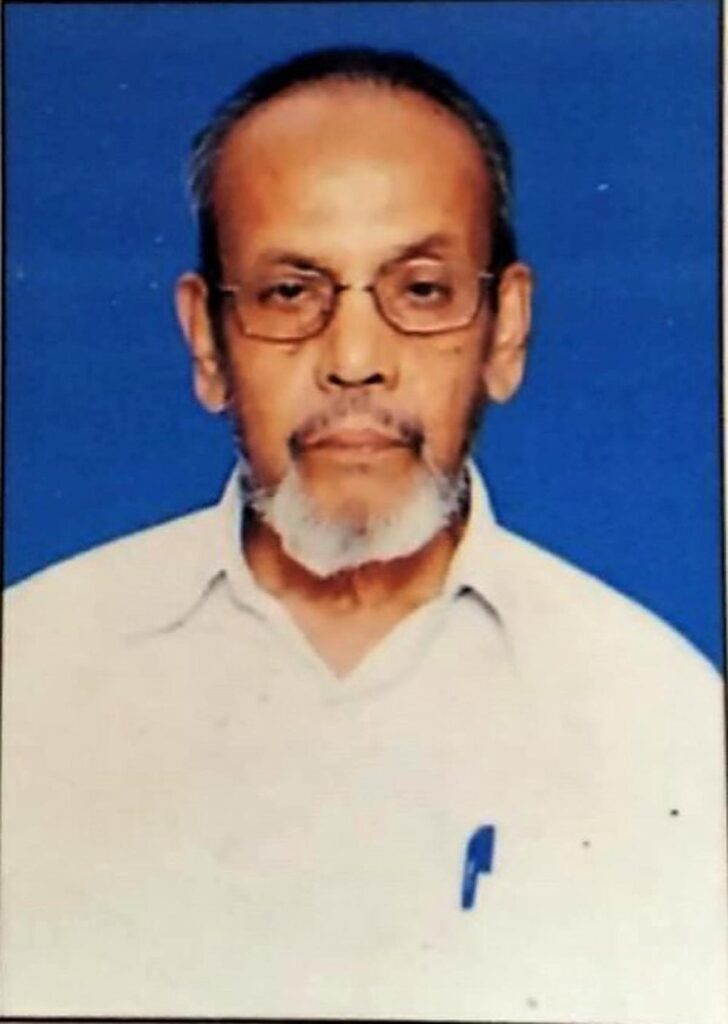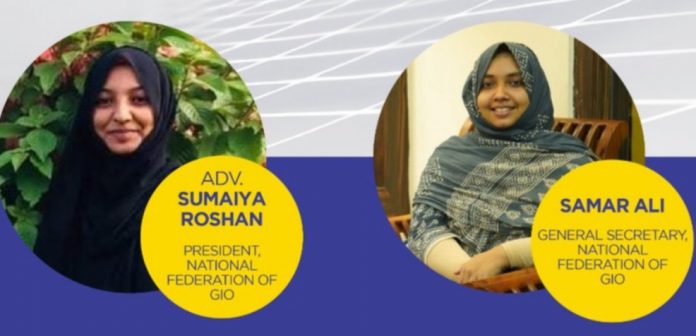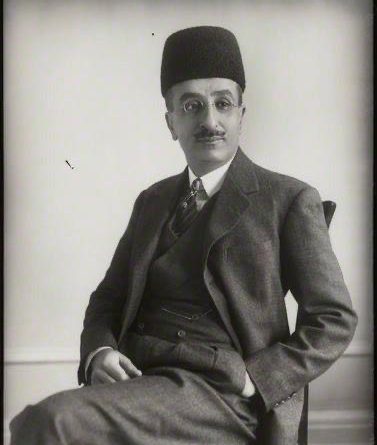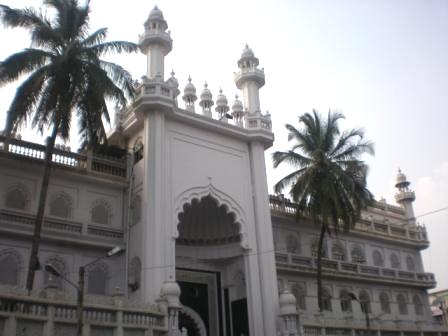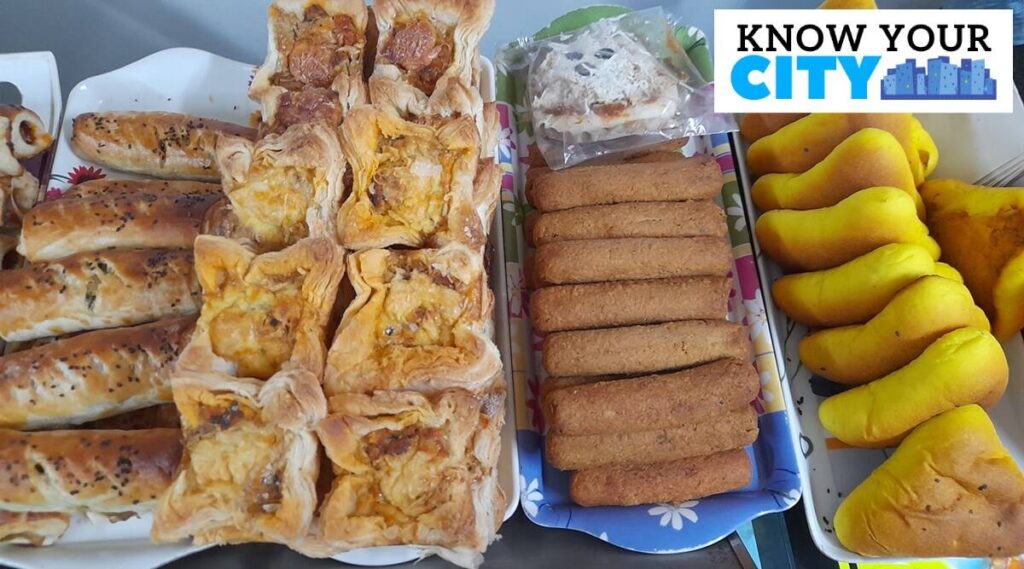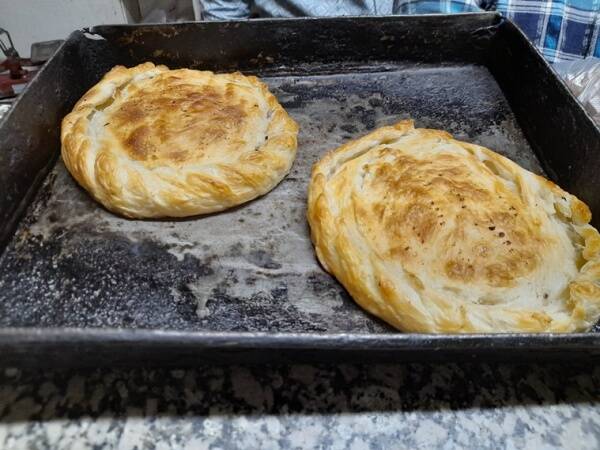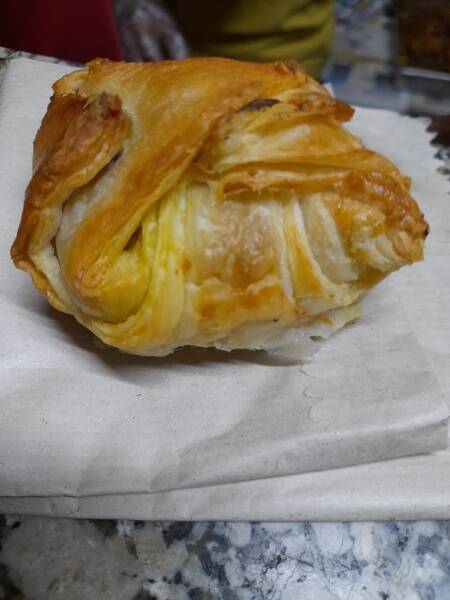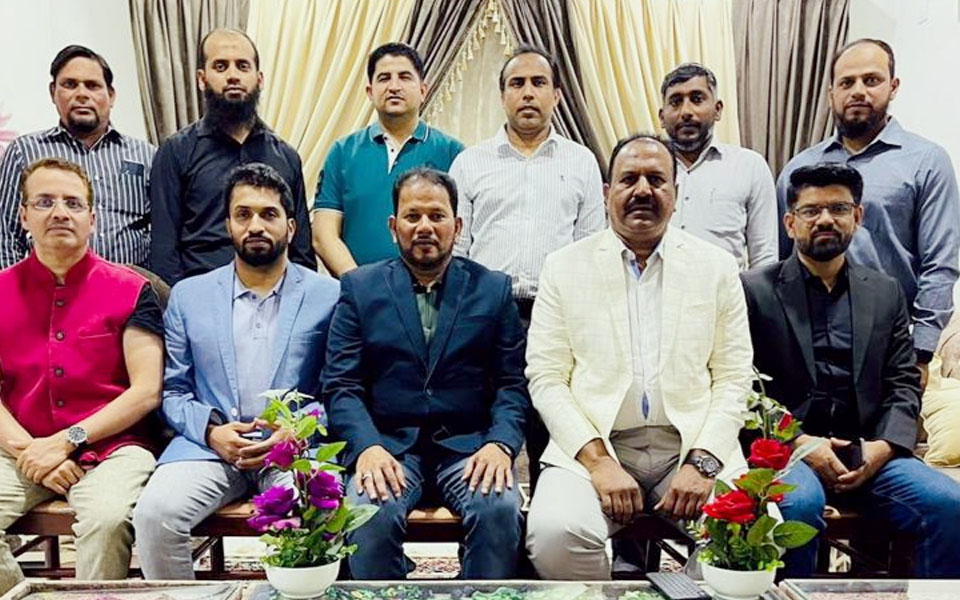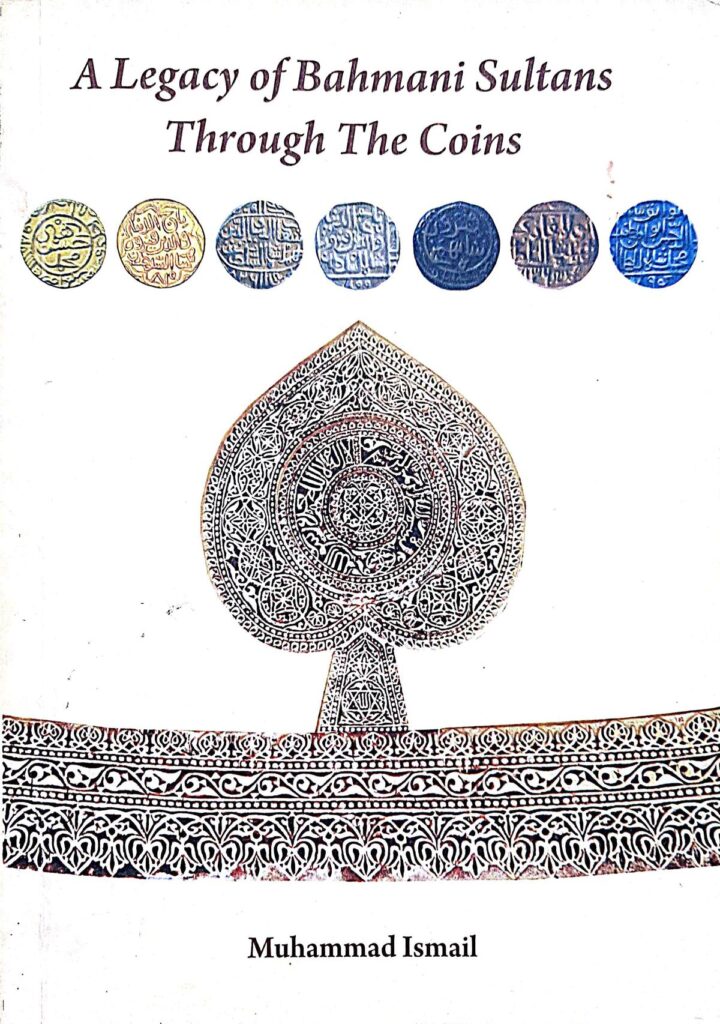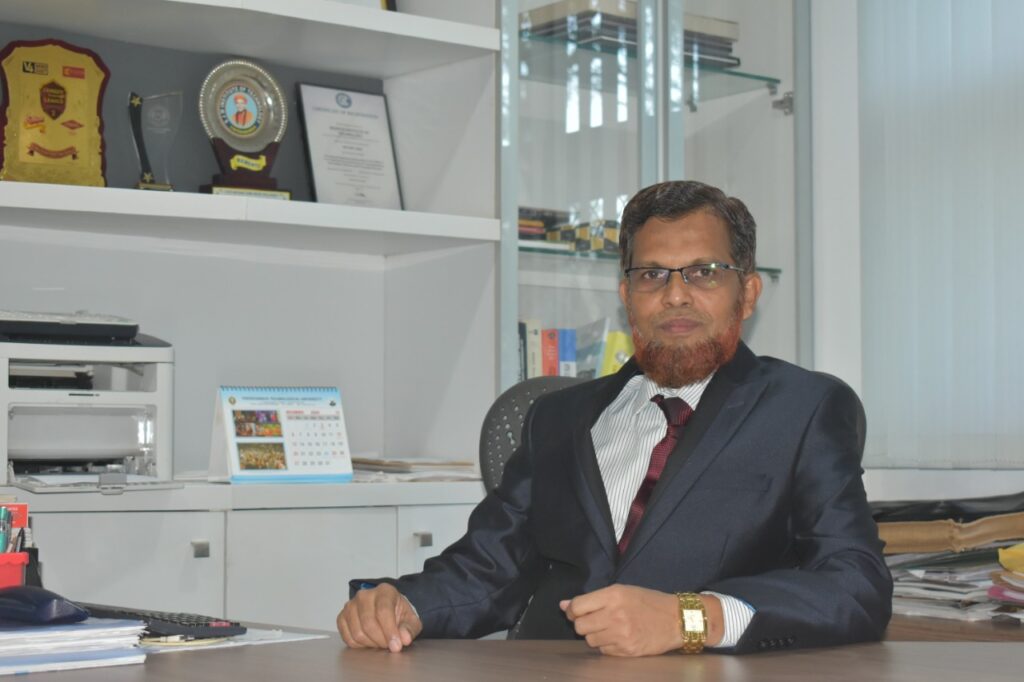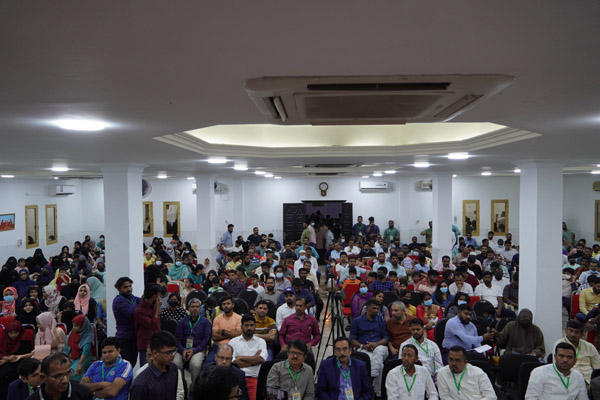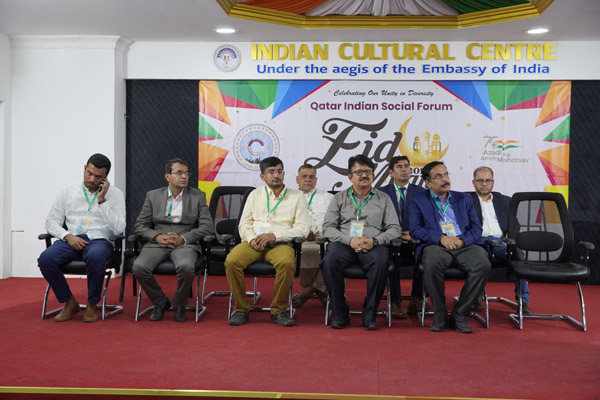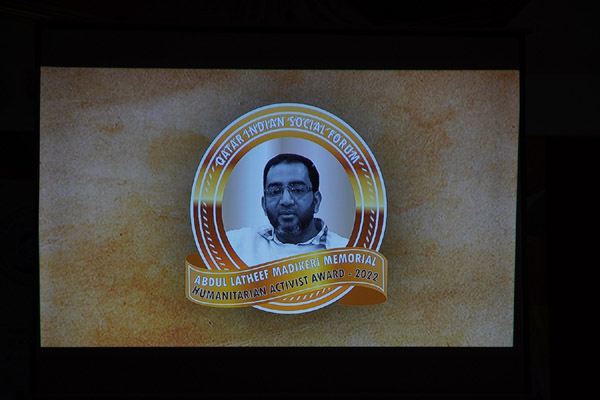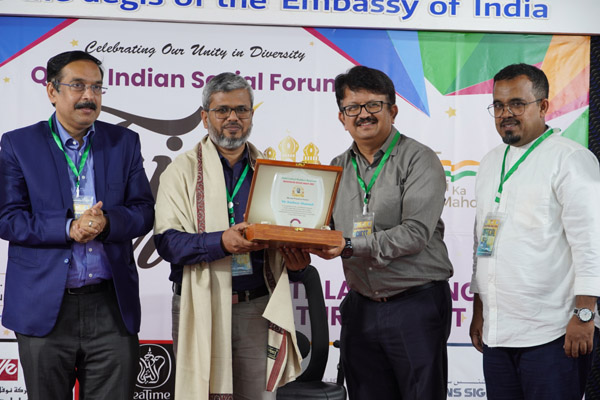Mysuru, KARNATAKA :
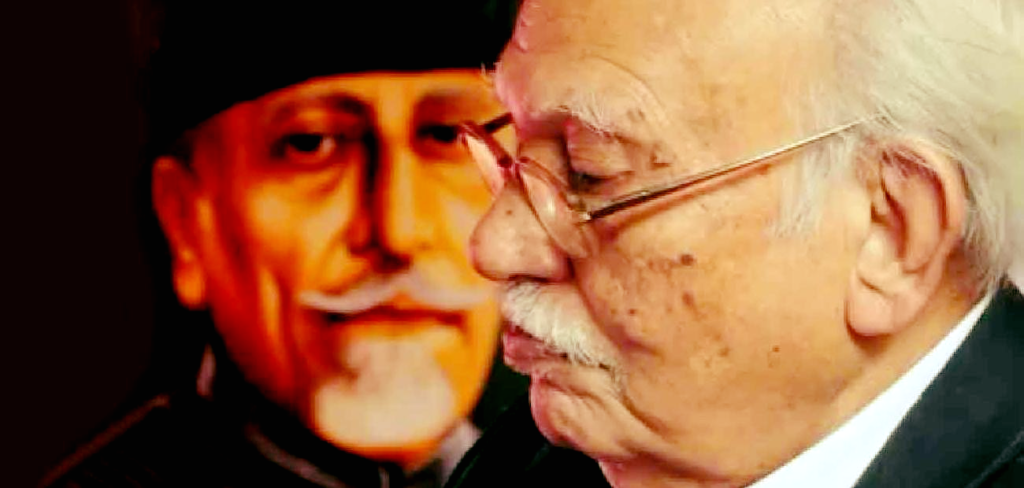
Mysuru:
Prof B Sheikh Ali, a veteran historian, academician and former Vice-chancellor of Goa and Mangaluru Univeristiy has passed away at a private hospital in the city on Thursday. He was 98.
He was a resident of third Cross, seventh main, Saraswatipuram in the city.
He is survived by his son, daughter and relatives and friends. The mortal remains will be taken to Muslim Hostel, Saraswatipuram, Mysuru for Deedar, followed by burial at main Khabrasthan behind Mysore Jail at Tipu Circle.
Sheikh Ali, B was an eminent historian and his contribution to the theory of history and its application to the ground realities of Karnataka is marvelous.
He was a student of University of Mysore and retired from the same institution as a professor of History.
A brief profile
Academic Distinctions
1. B.A. (Hons.) of Mysore University, I Rank, Gold Medalist, 1945.
2. MA. II Rank, Mysore University, 1946.
3. Ph.D., Aligarh Muslim University, 1954.
4. Ph.D., London University, 1960.
5. General President, Indian History Congress, 47th session, 1986.
6. President, Indian History Section, XXVIII International Congress of Orientalists, Canberra, Australia, 1971.
7. Founder President of Karnataka History Conference.
8. President, South India History Congress, 1985.
9. Delegate to the International Seminar at Ankara, Turkey, 1982.
10. Delegate to the International Seminar at Sofia, Bulgaria, 1986.
11. Delegate to the International Seminar, Moscow, Soviet Union, 1989.
12. Delegate to the International Seminar at Ras-al-Khairna, UAE, 1990.
13. Invited as Consultant to set up Indian Studies Departments and to teach at the University of Georgia, U.S.A. 1976-7.
14. Author of over 100 papers and 40 books.
Awards Conferred
1. Golden Jubilee Award of Mysore University for research in Humanities and Social Sciences.
2. Rajyotsava award of Karnataka State as Distinguished Educationist.
3. Mythic Society of India Award as Distinguished Historian.
4. Maulana Jauhar Award, 2003.
5. Sir Syed Award by American Federation of Muslims of Indian Origin (AFMI) -2004.
6. Canara Bank Award.
7. D.Litt. (Han. Causu) Kannada University, Hampi, 1998.
8. D.Litt. (Hon. Cause) Karnataka State Open University, Mysore.
9. D.Litt. (Han. Causa) Tumkur University, Tumkur.
10. D.Litt. (Han. Causa) University of Mysore, Mysore.
11. Government of Karnataka Award for Social Service.
12. Al-Ameen All-India Community Leadership Award, 2008.
Membership of Prestigious Bodies
1. Member, South and West Asian Regional Branch of the International Council of Archives, New Delhi.
2. Member of the Review Commission of the Karnataka Universities, Bangalore (1992-1994).
3. Member, Indian Historical Records Commission, New Delhi.
4. Member, All India Educational Movement, New Delhi.
5. President of the Cell to draft a project for a new University for the Muslim, New Delhi.
6. Former Member, Dr. Zakir Hussain Memorial Trust, New Delhi. (Prime Minister of India is its Chairman).
7. Member of the Value-Orientation of Education Committee, Planning Commission, New Delhi.
8. Founder Vice-Chancellor of two new Universities, Mangalore and Goa.
Abroad Tours
Great Britain, France, Germany, Switzerland, Portugal, Soviet Union, United States of America, Canada, Turkey, Egypt, Saudi Arabia, United Arab Emirates, Australia, Malaysia, Brunei and Singapore.
Social and Educational Activities
As the Founder President of Sultan Shaheed Educational Trust, Mysore he established the following institutions.
a) Deeniyat Madrasa : Ghousianagar, Mysore.
b) Belagodu Abdul Sattar Nursery School: Ghousianagar, Mysore.
c) Sultan Shaheed Lower Primary School: Urdu Medium, Ghousianagar, Mysore
d) Sultan Shaheed Higher Primary School: English Medium, Ghousianagar, Mysore.
e) Sultan Shaheed Women’s Tailoring Centre: Ghousianagar, Mysore.
f) Sultan Shaheed Women’s Craft Centre: Ghousianagar, Mysore.
g) Sultan Shaheed Clinic for Women and Children (Charitable): Ghousianagar, Mysore.
h) Azad National Nursery School: Radhakrishna Nagar, Mysore.
i) Azad National Lower Primary School: (Kannada Medium), Radhakrishna Nagar, Mysore.
j) Maulana Azad Girls High School: (English Medium), Radhakrishna Nagar, Mysore.
k) Maulana Azad B.Ed., College: Radhakrishna Nagar, Mysore.
l) Maulana Azad D.Ed., College: Radhakrishna Nagar, Mysore.
m) Maulana Azad AFMI PUC College: Radhakrishna Nagar, Mysore.
n) Maulana Azad Hostel for Girls: Radhakrishna Nagar, Mysore.
o) School for Challenged Children: Ghousianagar Mysore.
He was president of Mountain View chain of institutions in Chikmangalur, Karnataka, where in a sprawling campus of 35 acres of land classes run from Nursery to Degree level with 2500 children with facilities of Hostel both for boys and girls.
As the President of Muslim Education Society in Mysore, he established a dozen Nursery and Primary Schools which have now been upgraded to First grade College level.
He was also president of Central Muslim Welfare Council, Mysore, and instituted Micro-Finance Credit Scheme benefiting hundreds of poor Muslim women and their families, together with coaching classes both for High School and PUC classes.
He was Editor-in-Chief of Premier Urdu print media of Karnataka, Daily SALAR and Weekly SALAR.
As the President of the New Muslim Hostel Mysore, he completed the following projects:
a. Utility Block
b. Dormitory Block
c. Prayer Hall
d. Commercial Complex, 1st Main, Saraswathipura, Mysore, facing western side.
e. Another Commercial Complex on the same road facing eastern side.
Publications :
He authored following books:
1) A Leader Reassessed, Life and work of Sir Syed Ahmed Khan: Mysore, 1999.
2) Abul Kalam Azad, Vision and Action: Hyderabad, 2008.
3) Tipu Sultan, a Study in Diplomacy and Confrontation: Rao and Raghavan, Mysore, 1982.
4) Tipu Sultan: National Book Trust of India, New Delhi, 1972.
5) Tipu Sultan, a Great Martyr: Bangalore University, 1993 (Edited).
6) British Relations with Hyder Ali: Rao and Raghavan, Mysore, 1963.
7) Dr. Zakir Hussain, Life & Times, a Comprehensive Biography: Vikas, New Delhi, 1991.
8) Education and National Development: Translation of Dr. Zakir Hussain’s Talimi-Quthbat: New Delhi, 1993.
9) A Great Teacher: Life & Work of Dr: Zakir Hussain: Prasaranga, Mysore, 1997.
10) Makers of Indian Literature series, Dr. Zakir Hussain: (Co-author with Khursheed Alam Khan), Sahitya Akademi, New Delhi, 1991.
11) History: Its Theory and Method: Macmillan Company of India, 1978.
12) Islam, A study in Cultural Orientation: Macmillan Company of India, New Delhi, 1982.
13) Essence of Islam: Mysore, 2004.
14) Comprehensive History of Karnataka: Vol. IV & V Hampi, 1998.
15) Gangas of Talkad: Volume under History of Karnataka, Prasaranga, University of Mysore, Mysore, 1975.
16) The Hoysala Dynasty (Edited): Prasaranga, University of Mysore.
17) A Short History of World Civilization; Prasaranga, University of Mysore.
18) Essentials of Indian Culture Prasaranga University of Mysore.
19) History of Modern Asia: Mysore, 1976.
20) History of South India: Prasaranga, University of Mysore, 1977.
21) Approaches to Harmony, Mysore University, 1994 (Edited).
22) Goa Wins Freedom: Reflections and Reminiscences: Goa, Daman and Diu Silver Jubilee Celebration Volume, Edited, Goa University Publication Series, Goa University, Bambolim, Goa, 1986.
23) Javeed Nama of Allama Iqbal: (English Translation), Knowledge Society Publications, Mysore, 2008.
24) Moulana Jalaluddin Rumi: Knowledge Society Publications, Mysore, 2008.
25) Imam Ghazali: Knowledge Society Publications, Mysore, 2009.
26) Hafiz-e-Shiraz: Knowledge Society Publications, Mysore, 2009.
27) Shaikh Sa’di: Knowledge Society Publications, Mysore, 2009.
28) Umar Farooq: Knowledge Society Publications, Mysore, 2010.
29) Moulana Altaf Hussain Hali: Knowledge Society Publications, Mysore, 2010.
30) Mirza Asadullah Khan Ghalib: Knowledge Society Publications, Mysore, 2011.
31) History of Bahmani and Bijapuri Rulers: Mysore Book House, 2011.
32) My life, (Autobiography): Knowledge Society Publications, Mysore, 2009.
Urdu Publications
1) Hind ki Maya Naz Hastiyan: Urdu, Development Bureau, New Delhi, 1992.
2) Roshan Nuqoosh : Tamilnadu Urdu Publications, Madras, 1995.
3) Irtikh-e-Kayinath aur Insan: Urdu Development Bureau, New Delhi, 1998.
4) Alam-e-Islam-ke-Jawahar-pare: Urdu Vols. Dar-ul-Umoor, Mysore, 2004.
5) ilm-e-Tarikh kay Mukhtalif Goshe : Dar-ul-Umoor, Mysore, 2008.
6) Armughan-e-Salar : Salar Publications, Bangalore – 2008.
7) Anwar-e-Iqbal: Salar Publications, Bangalore – 2011.
8 Noor-e-Baseerath: (26 Special Numbers) (1997-2008).
source: http://www.muslimmirror.com / Muslim Mirror / Home>Obituary / by Muslim Mirror Staff / September 01st, 2022
